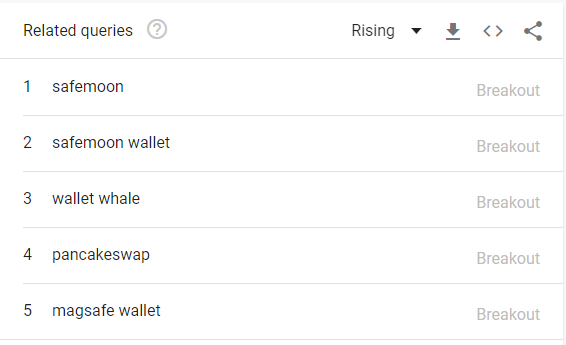
-
ROAR
- 5 Min Read
- Blog, Digital Marketing, SEO
How to Master Your Keyword Marketing Strategy
Keyword Research is the foundation of any good digital marketing strategy. We’re going to show you how to build the optimal keyword marketing strategy for your website, so you can ROAR your way to the top.
Why Keyword Research is so important
Many people ask how many keywords should a website have? The answer is; lots. The reason is simple, you want a wide array of keywords to rank for. Think of it as casting your net across google, the more keywords you have, the bigger your net. But there is far more to a good keyword marketing strategy than just having lots of keywords on your website.
I feel it’s important to clarify the difference between having lots of keywords for your website and keyword stuffing. When I say you should have lots of keywords for your website, this is in combination with your site having lots of pages. You want to have one focus keyword dedicated to one page. More about this and page cannibalisation later. Keyword stuffing is where you ram a page full of its target keyword. Repeating it at every opportunity and often in ways that don’t make sense. Google heavily penalises sites for this and is classed as a ‘black hat SEO’ technique. We’ll go through how to effectively optimise your pages for your targeted keyword at a later time.
Keyword research techniques
We recommend keeping a spreadsheet of all your gathered keywords and their metrics. You may not use all the keywords you find, but you never know when you may need to change your focus or have some new content that you need a keyword for.
Create an initial seed keyword list
The first thing you’ll need when you create your list of keywords is your seed terms. These are normally what you come up with off the top of your head. The first terms that come to mind when you think of your brand. Another method is to do some exploring on your site. Review each page and pick one or two keywords from those pages which are most relevant.
The purpose of gathering your seed keyword list is to give you a foundation from which to branch out. From here you can start gathering broad match and phrase match keywords to flesh out your list.
Competitor Keyword research
Competitive keyword research is a great place to start. By researching what your competitors are running for, not only will you begin to develop your keyword list with terms relevant to your area, but you’ll also be able to take a more aggressive approach to your keyword marketing strategy.
Targeting the same keywords as a competitor is slightly more difficult, but also makes it slightly more difficult for your competitor to maintain their ranking simply by introducing more competition into the search engines index for that keyword.
Identifying a keyword gap
Competitor keyword research can also help you find keyword gaps and new keyword opportunities for you to exploit. By investigating what terms your competitors are ranking well for and terms you’re ranking poorly for, you can focus your efforts on better optimising those paged. Be that through adding more related or long-tail keywords or by utilising a new backlink strategy to boost that page.
Breakout keywords
Breakout keywords can be an excellent opportunity for any niche. You can find them by using Google Trends. The great thing about Google trends is that it lets you see how well a keyword will likely perform in the future, compared to most keyword tools which simply give you raw search data.
When Google Trends identifies a keyword as being “Breakout” this means that the search volume for that term has increased by 5000%. With that, you can safely assume that, at least in the short term, that trend will continue and monthly searches will increase. So now would be an excellent time to start targeting that keyword and get a head start on the rankings.
Conversely, Google Trends will also show you when a keyword is beginning to decline in popularity. Letting you know that you should start to wind down your efforts on that term and perhaps look for a suitable replacement keyword.
As an additional tip, it’s a good idea to expand the timeframe of the data. This lets you wor out whether an increase in keyword popularity is a trend or just a fad.
High intent keywords
A high-intent keyword refers to a search term that has a high likelihood of resulting in a conversion. You should always keep search intent in mind. When selecting your target keywords, search intent will tell you how likely ranking for that desired keyword will result in a conversion.
Here are three types of user intent you should consider;
- Navigational – looking for a particular brand or page.
- Informational – look for information on a certain topic or to answer a question.
- Transactional – looking to make a purchase.
Types Of Keyword
When using your keyword tool you may come across the following types of keywords.
Short tail keywords
These are single term keywords. Not very specific and unfocused. Like “Apple” or “Egg”. The intent here is normally investigational. The searcher is probably working to narrow down their search and may eventually move to a long-tail keyword to find what they’re looking for.
Long-tail keywords
These are high intent keywords or keyphrases. Long-tail keywords generally tend to get less search traffic but tend to have a higher conversion value. Long-tail keywords are usually phrases or questions. So rather than just “Apples”, a long-tail keyword would be “Juicy green apples” or “apple bottom jeans”. Both are much more specific.
Keyword Proximity
Think of it as having a long tail keyword, full of short tail keywords and proximity is the distance between those short tail keywords, within that long-tail keyword. The smaller the distance between a search term’s individual keywords, the more relevant it will be from a search engine‘s point of view.
Keyword attribution and why it’s important to your keyword marketing strategy
This is key when monitoring your keyword rankings. Keyword attribution is the keyword that is attributed to a certain goal or action. Normally this is referring to the keyword attributed to a user clicking through to your page, so the keyword which was searched. It’s important to track this so you can see what keywords are performing well for your site and which ones need to be improved or replaced.
Building your Keyword Marketing Strategy
Once you’ve gathered all your keywords and completed your keyword list(s) it’s time to start on your keyword strategy. The first step is to identify the high intent keywords you want your pages to rank for. The key here is to select keywords that have a good level of traffic, with low competition and are highly relevant to your page. Then all you need to do is assign your target keyword to a page. It’s important to do this to avoid page cannibalisation.
Page cannibalisation is where more than one of your web pages are fighting to rank for the same keyword. It’s important to avoid this as you could find yourself with two pages, ranking for the same term, sitting in on the second page of the search results when if they weren’t fighting each other for the ranking, one of them could be sat on the first page of results. This can make a massive difference.
Need a keyword research tool that adapts to your website and helps you build a winning keyword marketing strategy? Try our DIY SEO platform. Our Keyword research services can send you roaring to the top.










